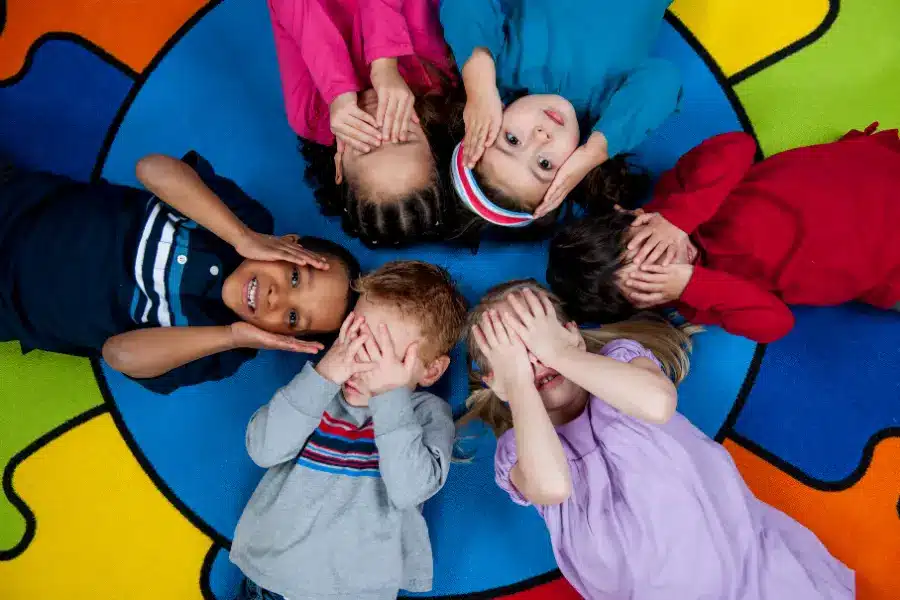When learning a new language, people might use grammar books and exercises but learning that language’s vocabulary is just as important as it forms the basis of the language. Vocabulary refers to the words we must learn to communicate effectively. The significance of vocabulary development has been highlighted for decades. Since the fundamental goal of reading is comprehension, having a strong vocabulary helps kids excel in all forms of communication, including reading, writing, speaking, and listening. The expert writers from typemyessay.me explain that teaching a child to recognize words, sounds and meaning helps build stronger neural pathways that support fluency in reading.
Reading vocabulary consists of words that we must know in order to comprehend the text we read. This is equally important for both native and non-native language learners. Reading books with fewer words and more pictures helps kids develop an interest in reading and helps expand their vocabulary knowledge. A research done in 2010 shows that vocabulary size caused a variance of 64% in the reading score of people.
Writing vocabulary includes words that we use when performing writing tasks. Speaking language includes words we use while making conversations and helps a person speak fluently. If one does not have a huge vocabulary knowledge, expressing opinions and ideas during discussions and in writing might be difficult for that person.
Listening vocabulary includes the words that help us understand things we hear. Kids who listen to vast vocabulary at home are expected to have a higher learning and progress rate than those kids who are not exposed to much vocabulary. It is obvious that if you have not heard a word, it would be difficult for you to make sense of the context in which it is used. Hilde van Zeeland also emphasized the importance of vast vocabulary knowledge for the development of listening skills in his paper published in 2012.
The importance of vocabulary for kids’s growth and development for the following reasons:
- Better vocabulary helps students grow and achieve success in school
- The learning ability can be predicted by looking at the child’s vocabulary development at early stages in their life.
- Good vocabulary helps children expand and express their thoughts and ideas.
- Increasing the knowledge of words a child has helps them absorb new information faster.
- Better vocabulary helps children build confidence and a strong personality
- Advanced vocabulary enables children to develop better communication skills.
Vocabulary learning can be broadly classified into two major types: Direct and Indirect. Most learning takes place in indirect form through the daily experiences of children. This includes learning through listening to their adults, extensive self-reading, and practicing oral language. Direct vocabulary learning helps students learn words that are not part of their daily lives yet are important for understanding difficult comprehension and concepts. This type of learning teaches students the basic learning strategies of the language, e.g., root words of the English language.
Ever since the trend of online classes for kids has increased, teachers have appreciated the idea of having vocabulary classes online to cater to a larger audience. Fun ways to learn in vocabulary classes online or physically include playing vocabulary games, incorporating toys with learning, and using sticker boards and theme magnets for creating stories.
Learning vocabulary in a non-native language is quite often a challenge for students. It has been said that instructional activities facilitate students in learning new vocabulary terms and remembering them. Instructional activities can be systematized into six steps. The first few steps help introduce the new vocabulary words to the students. In contrast, the remaining steps provide students exposure that helps in shaping and sharpening their understanding of the new vocabulary terms. The six steps that will quicken your child’s English Language Learning process at home are as follows:
Explain
Teachers teaching vocabulary courses must provide students with information relevant to the new vocabulary words. To build an initial understanding of words, teachers should describe, explain, and give examples of the words through:
- Connecting words to current situations or events
- Telling stories related to those words
- Creating pictures to represent the words
- Using videos or photos from the internet to explain the words and their usage
To develop a primary understanding of the new words, teachers need to use non-linguistic and linguistic cues.
Restate
Teachers teaching vocabulary classes online or physically must ask students to summarize the description, explanation, and examples of the words in their way. This would help students not just rote learning the taught concepts but also implement their learnings by comprehensively constructing their explanations. Making a notebook of ‘Vocabulary Words’ might be helpful for students to write down their descriptions and examples and add any additional information they feel important. This would help them go back to and revise the words frequently, ensuring complete absorption of the taught concepts.
Show
Teachers of vocabulary courses must also ask students to visually represent the words through graphs, pictures, or symbols. While students need to learn words and process information in linguistic ways – written and oral, it is equally important for teachers of vocabulary courses to pay attention to non-linguistic ways as it helps students think out of the box.
Discuss
Students should also be engaged in group discussion activities that would allow them to compare terms, list down synonyms and antonyms, and create metaphors of the words learned. Discussions would also enable students to look at the usage of words in different contexts and would deepen their understanding of the words.
Reflect & Refine
For this step, students might be divided into groups or pairs. They compare their explanations of the words, make additions or deletions in their notebooks, describe their pictures and thoughts, and identify and clarify their thoughts.
Apply in Learning Games
Teaching through games has always been an exciting and successful form of learning. Involving students in vocabulary games would enable them to learn new words in a fun way to increase memorability.
Vocabulary is evidently important for English language learners as it helps attain fluency, develop communication skills, build confidence, and a strong personality. But other factors influencing language ability must be taken into consideration as well.



